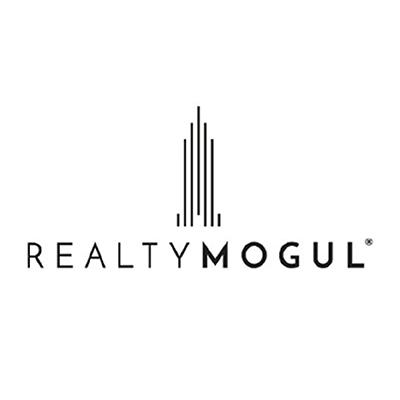Invest in individual commercial real estate properties or REITs
Buy shares in vacation rental properties
Investments
$25,000
The minimum investment on RealtyMogul typically ranges from $25,000 to $35,000, depending on the specific investment offering.
Investments
$100
Fundhomes sets its minimum investment threshold at $100, with shares available at $10.
Moderate Risk
3/5
Investing through RealtyMogul entails risks like market volatility, economic shifts, and property-specific issues. Investments are illiquid and there's potential for loss of capital.
Moderate Risk
3/5
Investing in Fundhomes carries risks such as potential loss of capital, market fluctuations, and regulatory changes affecting profitability. Investments are generally illiquid with a long-term exit strategy, and early withdrawal may result in penalties. A secondary market to improve liquidity is under consideration but not guaranteed.
Minimum Liquidity
1/5
Investments through RealtyMogul are illiquid, as they are private real estate transactions not traded on public exchanges, and therefore cannot be easily sold or traded. Investors should have a long-term commitment and not expect to resell quickly.
Minimum Liquidity
1/5
Fundhomes offers liquidity options including automatic share sales when properties are sold (5-10 years), a secondary market for selling shares to other investors, and a buyback program, with potential early sale penalties within the first year.
Receive new reviews from Fintorial
High Return
15.0 %
Investors on RealtyMogul can expect an overall realized IRR of 20.8% and an overall target IRR of 15.0%. Cash-on-cash returns, IRR, and equity multiples are key metrics provided for each deal.
Moderate Return
11.36 %
Investors in Fundhomes can expect cash dividends from rental income, projected at a hypothetical rate of 6.62% per year, and property appreciation, estimated at 4.74% per year, upon sale within 5-10 years. This totals a hypothetical annual return of 11.36%.
Long-term Investment
3-10 years
Investments on RealtyMogul generally have a hold period ranging from 3 to 10 years, depending on the individual property's business plan and associated financing.
Long-term Investment
5-10 years
The investment time horizon at Fundhomes is typically 5 to 10 years, focusing on long-term gains from rental income and property appreciation.
Who can invest
United States
RealtyMogul allows both accredited and non-accredited investors to use its platform. However, only accredited investors can participate in private placement offerings, while both categories of investors may invest in RealtyMogul's managed REITs, subject to certain legal limitations.
Who can invest
United States
To invest in Fundhomes, one must be a U.S. Citizen or a resident of the U.S. with a valid Social Security Number.
Moderate Volatility
3/5
Commercial real estate assets on RealtyMogul can be volatile, with values affected by economic shifts, interest rates, and market trends. This can lead to fluctuations in investment value and potential financial losses.
Moderate Volatility
3/5
Fundhomes' vacation rental properties face real estate market volatility, with valuations influenced by economic shifts, interest rates, and regulatory changes.
Regulation and audits
SEC Regulated
RealtyMogul is regulated by the SEC and must adhere to strict disclosure and filing requirements. The platform's offerings are subject to regular audits to ensure compliance with financial reporting and regulatory standards.
Regulation and audits
SEC Regulated
Fundhomes utilizes Regulation A for public offerings, enabling investors to buy shares in Series LLCs that each own a vacation rental property. This approach grants investors partial ownership in a property, with all details outlined in SEC-filed offering circulars.
Insurance
Yes
RealtyMogul's properties are insured against physical damage and loss, but insurance might not cover all risks, such as market volatility or economic downturns. Insurance is a risk mitigation tool, not a guarantee against all potential losses.
Insurance
Yes
Fundhomes insures its properties against physical damage, but this doesn't cover market risks or regulatory changes affecting property values. Insurance limits may also not match property market values.
Payouts
Dividends
Investors may receive quarterly distributions, which are not guaranteed in timing or amount and depend on the performance of the investment and terms set by the managing real estate company.
Payouts
Dividends
Investors in Fundhomes receive quarterly dividends derived from the net rental income of vacation rental properties, after deducting operational expenses. These dividends reflect a portion of the property's profitability but are not guaranteed and can fluctuate based on occupancy rates and market conditions.
Withdrawals
Investors on RealtyMogul can expect to receive their money back either through property sales or distributions during the investment's hold period, as outlined in the offering documents. The investments are illiquid, so exact timing of returns is not guaranteed.
Withdrawals
Investors in Fundhomes can receive their investment back when the property is sold, usually within 5-10 years, or by selling their shares earlier on a secondary market, depending on demand.
Extra Fees
Yes
Investors indirectly pay fees for each investment, which vary by the offering and cover administrative, legal, and management costs. Fee details are disclosed for each opportunity on the platform.
Extra Fees
Yes
Fundhomes earns through fees for property and asset management. This includes handling vacation rental operations like maintenance and guest services, as well as overseeing investment strategies and performance.
Taxes
Tax Form
RealtyMogul issues Schedule K-1 forms for individual deals and Form 1099s for REIT investments, made accessible via the investor's dashboard. Dividends from REITs historically have not been qualified for preferential tax rates.
Taxes
Tax Form
Fundhomes provides K-1 Tax Forms for each investment property, detailing investors' share of income, deductions, and credits. Typically, these forms are issued by March 15th each year, with an IRS extension deadline of September 15th if needed.

